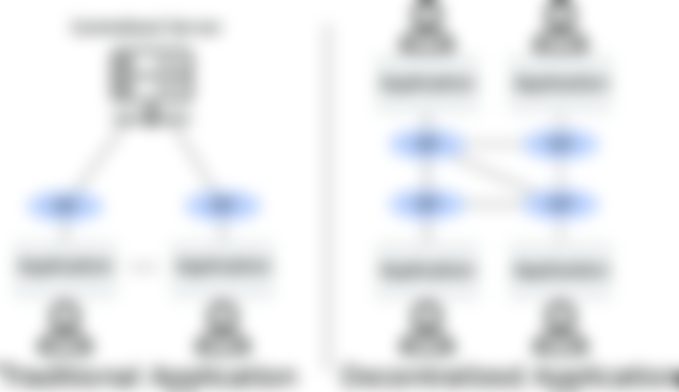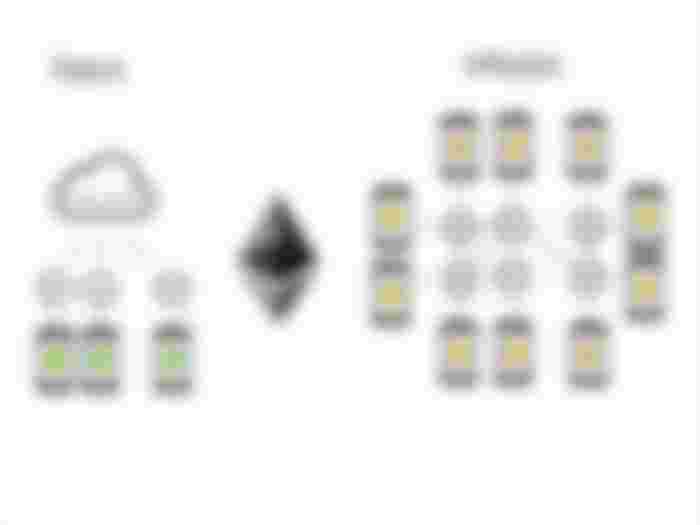
A decentralised app, also known as a distributed app or DApp, is an open-source application running its backend code on a blockchain, which requires no middleman to function or manage user information.
In other words, DApps can pave the way towards a more decentralised economy as running these type of applications requires no central authority to run.
The Main Categories of DApps
Fully anonymous DApps: These DApps enable the participants to remain anonymous. Additionally, interactions happen instantly and automatically. BitTorrent, for example, is a peer-to-peer transfer protocol that uses this technology.
Reputation-based DApps: This is an ecosystem where nodes are monitored and maintain status inside the applications. Trust is very important in reputation-based DApps. However, trust cannot be monetised or transferred.

The Different Types of Decentralised Applications
The Ethereum whitepaper divides decentralised applications into three types:
Financial applications that help users to manage and enter into contracts: This app is used by a user who wants to exchange ether to agree on a contract with another user. These users use the network of distributed computer nodes to enable the dispensation of this data.
Semi-financial applications that mix money with data from outside the blockchain: For instance, a crop insurance app that depends on external weather information. Such apps depend on oracles to transmit updated information from the outside world.
Other applications: These are non-financial apps used in decentralised governance and online voting, for example.
Decentralised apps offer a lot of room for innovation and the future will likely see a wide variety of DApps being created, much to the benefit of a more decentralised economy.

Currently cryptokitties is the successful DApp.



🎁Bitcoin is a great income site.🎁